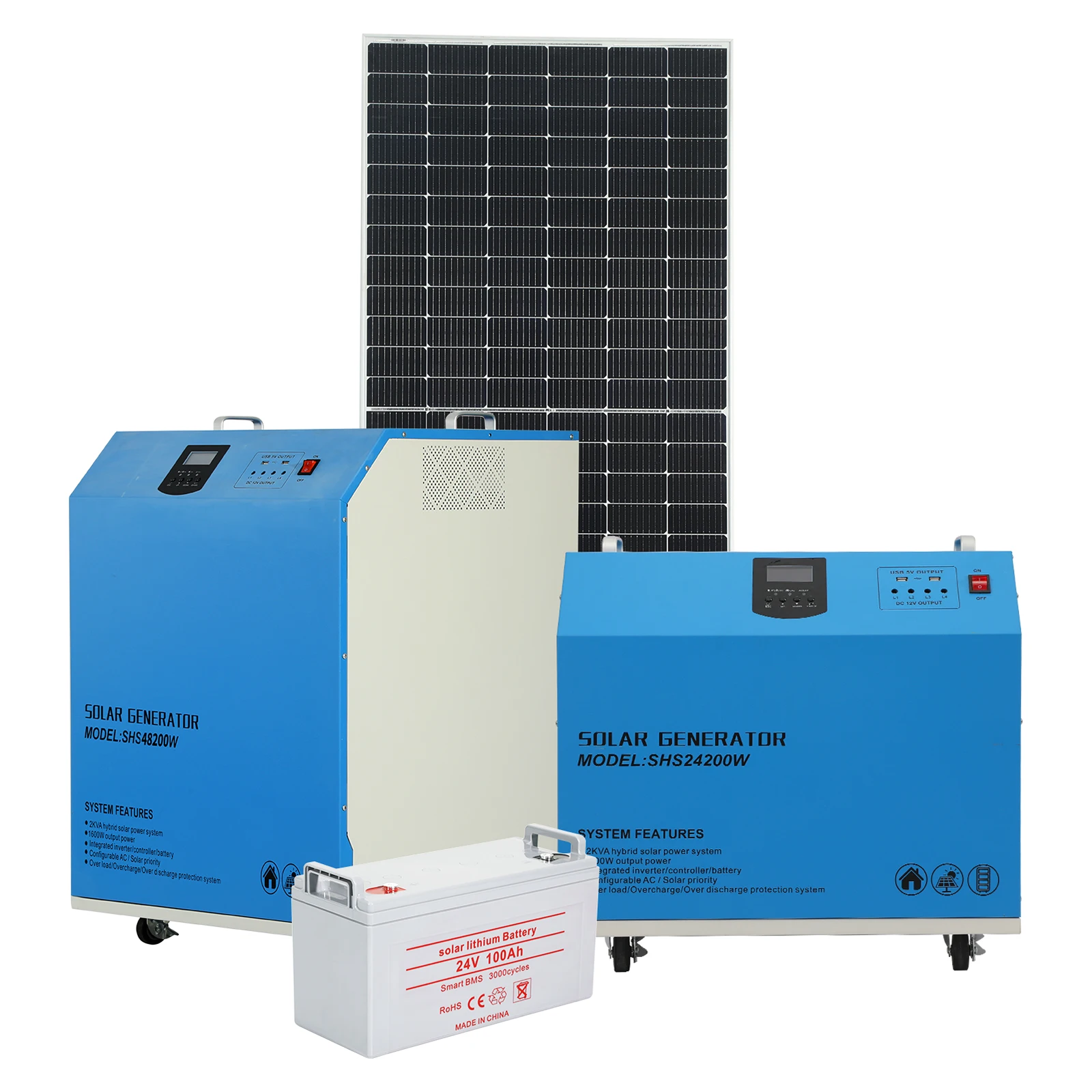Disclosure: This post contains affiliate links and I will be compensated if you make a purchase after clicking through my links. Learn More
Imagine relying on a solar generator to power your home or adventures, but suddenly you’re faced with a burning question: can you overcharge it? As you delve into the world of solar energy, understanding how to optimize your generator’s performance while ensuring its longevity becomes crucial.
You might wonder whether leaving it plugged in for too long or under the blazing sun could lead to unwanted issues. This article is your guide to unraveling the mysteries surrounding solar generator charging. We’ll explore the intricacies of solar power, addressing your concerns and giving you the clarity you need.
You’ll discover practical tips to maintain your generator’s health, ensuring it remains a reliable companion for all your energy needs. Dive in to uncover how you can safeguard your investment and maximize efficiency, all while avoiding potential pitfalls. Your journey to becoming a solar-savvy enthusiast starts here.

Credit: drivelong.en.made-in-china.com
Solar Generators Explained
Solar generators are becoming popular for their eco-friendly benefits. These devices convert sunlight into electricity, providing power without polluting the air. Understanding how they work helps in making informed decisions. People often worry about overcharging. Let’s delve into the workings of solar generators.
What Is A Solar Generator?
A solar generator consists of solar panels, a battery, and an inverter. Solar panels capture sunlight and convert it into electrical energy. This energy is stored in the battery for later use. The inverter changes the stored energy into a usable form. It powers devices and appliances effectively.
How Does A Solar Generator Work?
Sunlight hits the solar panels. Panels convert light into electricity. This electricity flows into the battery. The battery stores energy for use during night or cloudy days. The inverter changes stored energy from DC to AC. AC is the form used by most appliances.
Are Solar Generators Safe?
Solar generators are safe with proper use. They have built-in systems to prevent overcharging. These systems manage the flow of electricity efficiently. Overcharging is rare with modern generators. Safety features protect the battery and connected devices.
Advantages Of Using Solar Generators
Solar generators offer clean energy. They reduce reliance on fossil fuels. Users save money on electricity bills. Portable models provide power during outdoor adventures. They are quiet, unlike traditional generators. Maintenance is easy, with few moving parts.
Understanding Overcharging Risks
Overcharging can damage batteries over time. Modern generators have controls to prevent this. It’s essential to monitor battery health. Regular checks ensure optimal performance. Awareness of charging status helps prolong battery life.

Credit: www.alibaba.com
Basics Of Charging
Understanding the basics of charging a solar generator is crucial. It ensures efficient energy use and prevents damage. Solar generators rely on solar panels to capture energy. This energy is then stored in batteries. Knowing how these components work together is key. It helps you maintain your solar generator effectively.
Solar Panels And Energy Conversion
Solar panels absorb sunlight and convert it into electricity. This process involves photovoltaic cells. These cells are the core of energy conversion. They capture sunlight and transform it into direct current (DC) electricity. The efficiency of your solar panels affects charging speed. Keep them clean and positioned well. This maximizes sunlight absorption.
Battery Storage Mechanisms
Once converted, electricity needs storage. Solar generators use batteries for this purpose. These batteries hold the energy until needed. They are often lithium-ion or lead-acid types. Each has its pros and cons. Lithium-ion batteries are lighter and last longer. Lead-acid batteries are cheaper but heavier. Choose based on your needs and budget.
Proper battery management is important. Overcharging can damage batteries. Use built-in charge controllers. These devices regulate the charge. They prevent overcharging and extend battery life. Regular monitoring helps maintain battery health.
Overcharging: Concept And Concerns
Solar generators are becoming popular for clean energy solutions. Yet, there’s a concern about overcharging. Overcharging happens when a battery receives more power than needed. This can harm the battery’s lifespan. Understanding overcharging is vital for solar generator users. Let’s explore what overcharging means and the potential risks it carries.
What Is Overcharging?
Overcharging occurs when a battery receives excess energy. This can damage the battery. Solar generators need careful management to prevent this. Modern systems have built-in safeguards. These prevent overcharging by controlling the energy flow. But users should still be cautious. Knowing your system’s limits helps avoid issues.
Potential Risks Of Overcharging
Overcharging can lead to several problems. First, it can reduce battery life. Excess energy causes heat, which degrades battery cells. Second, it may lead to safety hazards. Overcharged batteries can swell or even leak. This poses a risk to both the device and the user.
Lastly, constant overcharging impacts efficiency. A damaged battery won’t store energy well. This reduces the generator’s overall performance. Proper monitoring is essential to ensure safety and efficiency.
Modern Solar Generator Technology
Modern solar generator technology has transformed the way we harness and use solar energy. These generators are more efficient, safer, and user-friendly than ever before. With advanced features, they offer solutions to common concerns, such as overcharging. But how exactly do they achieve this?
Inbuilt Safety Features
One of the most impressive aspects of modern solar generators is their inbuilt safety features. These features act as a safeguard, ensuring your generator operates smoothly without risk of overcharging. They monitor various parameters to protect the battery and enhance its lifespan.
Think about it: would you buy a car without airbags? Similarly, having a solar generator with safety features provides peace of mind. These features include thermal protection, voltage regulation, and automatic shutoff, all designed to prevent overcharge and other potential hazards.
Role Of Charge Controllers
The heart of preventing overcharge lies in the charge controller. This component plays a crucial role in modern solar generator technology. It regulates the power flowing into the battery, ensuring it’s neither too much nor too little.
Charge controllers come in various types, like PWM and MPPT. Each has its own advantages, but both serve the same purpose: maintaining optimal battery health. Imagine charging your phone overnight without worrying about battery damage. The charge controller does the same for your solar generator, making it incredibly reliable.
Have you ever wondered why some solar generators last longer than others? Often, the secret lies in the quality of their charge controllers. Investing in a generator with a top-notch charge controller can save you from frequent replacements and ensure efficient energy use.
Next time you consider investing in a solar generator, remember to look for these modern features. They not only provide safety but also ensure you get the most out of your solar investment.
Common Misconceptions
Many believe solar generators can overcharge, but they come with inbuilt charge controllers. These controllers prevent overcharging. Understanding this helps avoid unnecessary worries.
When it comes to solar generators, there’s a lot of confusion about overcharging. Many people worry about damaging their solar investment, leading to unnecessary anxiety. Let’s clear up these common misconceptions so you can enjoy your solar generator with confidence.
Myth Vs. Fact
Many believe that leaving a solar generator connected to panels can lead to overcharging, much like leaving a phone plugged in overnight. However, most solar generators are equipped with charge controllers. These smart devices automatically regulate the amount of charge that flows into the battery.
I once left my solar generator connected during a camping trip, worried it might overcharge. To my surprise, it stopped charging once it hit full capacity. This experience taught me that modern solar technology is smarter than we often give it credit for.
Understanding Charge Limits
You might wonder how charge controllers work. Essentially, they monitor the battery’s charge level and adjust the power input accordingly. This ensures the battery never receives more energy than it can handle.
Think of it like filling a glass of water. Once full, you stop pouring to avoid overflow. Charge controllers do this automatically. Understanding this can alleviate concerns about overcharging.
Have you ever hesitated to leave your solar generator unattended? Knowing that these systems are designed to prevent overcharging should give you peace of mind. Embrace your solar generator’s capabilities and let it harness the sun’s power efficiently.

Credit: www.prostarsolar.net
Best Practices For Safe Charging
Solar generators are gaining popularity as eco-friendly power sources. Ensuring safe charging practices protects your investment and extends its lifespan. Understanding and adhering to best practices is crucial for optimal performance. Let’s explore some effective guidelines for safe charging of solar generators.
Proper Usage Guidelines
Always use the charger provided by the manufacturer. This ensures compatibility. Avoid connecting incompatible devices. Check voltage and current ratings before use. Follow the instructions in the user manual. Avoid exposing the generator to extreme temperatures. Store it in a cool and dry place.
Maintenance Tips
Regular maintenance keeps your solar generator in top shape. Clean solar panels with a soft cloth. Remove dust and debris to improve efficiency. Inspect cables for wear and tear. Replace damaged cables immediately. Charge the battery regularly, even when not in use. This prevents battery degradation. Monitor the battery level frequently. Avoid fully discharging the battery to prolong its life.
Future Of Solar Charging
As the world pivots towards clean energy solutions, the future of solar charging is more promising than ever. Imagine a world where solar generators are not just a backup for emergencies but a primary source of power, even in urban settings. With advancements in technology, solar charging is set to become faster, safer, and more efficient. Have you ever wondered what innovations lie ahead?
Innovations In Battery Technology
Battery technology is evolving rapidly. New materials like graphene and lithium-silicon are being tested to replace traditional lithium-ion batteries. These materials promise faster charging and longer life spans.
Consider the improvements in energy density. New batteries could store more power in smaller spaces, making solar generators more portable. You could easily carry them on camping trips or road journeys.
Such advancements could mean less concern about overcharging. With smarter batteries, you might find your generator automatically adjusting to prevent any harm. Wouldn’t that be a game-changer?
Improved Charging Systems
Charging systems are getting smarter. Modern solar generators come equipped with intelligent systems that manage power flow efficiently. These systems are designed to prevent overcharging and optimize battery health.
Think about real-time monitoring. You could track how much energy your solar panel is generating and how much your battery is storing. This transparency helps you make informed decisions about usage.
Enhanced compatibility is another feature. Improved systems can interact seamlessly with other devices, allowing for smooth energy transfer. Imagine charging your smartphone or laptop directly from your solar generator with ease.
As you explore these innovations, ask yourself: How will these advancements change your energy consumption habits? Are you ready for a future where solar charging is at the forefront of personal energy solutions?
Frequently Asked Questions
Can A Solar Generator Be Overcharged?
Yes, it can. Overcharging can damage battery cells. Use a charge controller to prevent this.
What Happens If You Overcharge A Solar Generator?
Overcharging may reduce battery life. It can also lead to overheating. Always monitor charging levels.
How To Prevent Solar Generator Overcharging?
Use a charge controller. It regulates voltage. Ensures safe charging. Check manufacturer guidelines regularly.
Do Solar Generators Have Overcharge Protection?
Most have built-in protection. Check product specifications. Ensure it includes overcharge prevention features.
Final Words
Overcharging a solar generator is a common concern. But it’s preventable. Use the right charge controller. It helps manage power flow efficiently. This ensures battery safety and longevity. Regularly check your generator’s manual for guidance. Follow manufacturer instructions closely. Also, keep an eye on the charging indicators.
They can signal potential issues. By staying alert and informed, you can protect your solar generator effectively. This way, you enjoy sustainable energy without worry. And extend your generator’s lifespan. Remember, a little care goes a long way. Keep your solar generator running smoothly with these simple steps.








